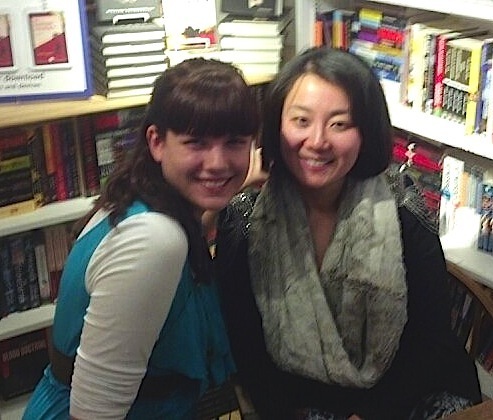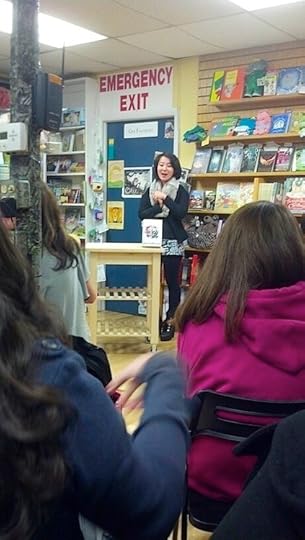Sara Raasch's Blog, page 526
November 13, 2013
marielubooks signing at The King’s English! She’s...
How happy is the blameless vestal’s lot!The world forgetting,...



How happy is the blameless vestal’s lot!
The world forgetting, by the world forgot
Eternal sunshine of the spotless mind!
Each pray’r accepted, and each wish resign’d.
Love the movie, LOVE the poem.
Writing the grand finale of your story
November 12, 2013
sarroora:
guiltyhipster:
dannybird22:
guiltyhipster:
I have...
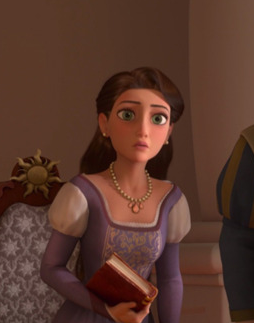
I have a headcanon that the Queen from Tangled is a huge bookworm like her daughter Rapunzel and that books are (or were) her escape. For eighteen years, her books distracted her from the pain of losing her only child.
One step further:
What if she also read stories to the children at orphanages because she wanted the feeling of reading to a child? Then one day a little boy said how much he loved the Tales of Flynnigan Rider. And she gave him that book because he was so sweet. He was so grateful that he promised that one day he would pay her back. And he did.
YOOOOOOOOOOOOOO
^^^^ I ACCEPT THIS HEADCANON AND THAT HEADCANON TO THE FULL EXTENT OF MY BRAIN’S CAPABILITY
YESYESYES
To aid me in my quest of making a Big Fancy Christmas Dinner, I have gathered the following...
To aid me in my quest of making a Big Fancy Christmas Dinner, I have gathered the following facts:
Number of guests: 4 (me, Husband, Husband’s dad, Husband’s mom. Assassin Cat will be there as well and I originally considered adding him to the list but I don’t know what kind of mood that sets for the dinner, having a place setting for a cat)
Number of fancy dishes: 6 (thanks to the whole recent-wedding thing)
Fancy Christmas centerpiece: None (SHOPPING YAY)
Fancy Christmas serving dishes: Three glass dessert dishes (they were on sale at Bed Bath & Beyond because one was missing but now I’M OFF ONE NUMBER. WHAT FRESH HELL IS THIS), one three-bowl dipping sauce server thing (I is a writer and I is good at the describing of things), one gravy boat, one giant salad bowl (salad, psh. Salad is just the garnish for your New Year’s Resolution), about two dozen ridiculously tiny dessert spoons (that may or may not cause my guests to feel like giants when they use them but I see no downside to that), and a garlic press (which isn’t at all a serving dish but I’m just inordinately excited that I NEVER HAVE TO CHOP GARLIC AGAIN).
Thus, I can safely begin plotting a menu as well as what other fancy serving dishes I need from World Market. Which is all of them, because I want to have World Market’s babies. They’d be glorious babies.
November 11, 2013
moniquill:
kateoplis:
Starting today, your face, name, and...

:
:
Starting today, .
Read more about the new terms here. But most importantly: opt out here.
I love that when I unclicked the box, it said ‘Your friends will be less likely to benefit from your recommendations’ as if NOT having my browsing and searching history show up everywhere they look is a negative thing…
Since this is the first year Husband and I will be, well, Husband and I, and we’re having...
Since this is the first year Husband and I will be, well, Husband and I, and we’re having Christmas at our place, I’ve decided I’m making a huge Christmas dinner. I’m talking fancy-shmancy, wine-from-silver-goblets, mince-pies-and-stuffed-turkey-and-Yule-logs-and-sugar-plums-dancing-in-their-heads type feast.
So, naturally, I thought I’d blog about it randomly from now until the Big Day under #SaraCooksChristmas. And if it turns out anything like the Great Hot Chocolate Mishap of May ‘13 (follow the link, start watching the video at the 8:18 mark), trust me, you’ll want to tune in.
November 8, 2013
erikawithac:
a-golden-lasso-of-my-own:
Yay! Feminist...
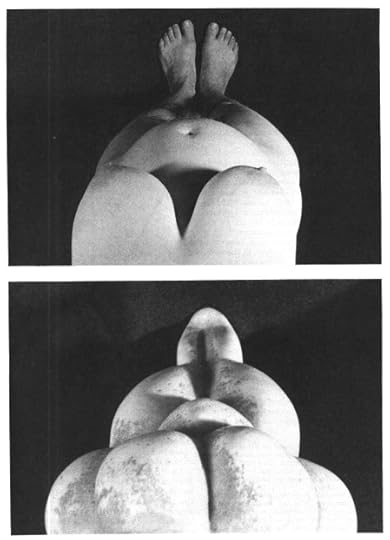
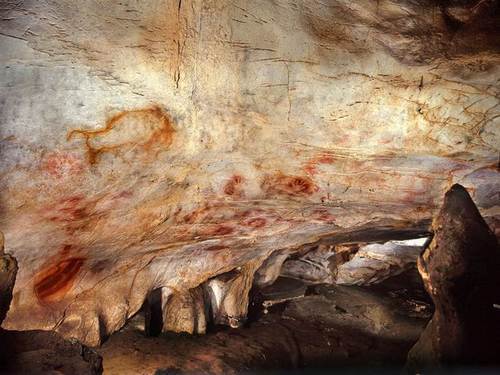
Yay! Feminist Anthropology time!
Prehistoric Cave Prints Show Most Early Artists Were Women
Alongside drawings of bison and horses, the first painters left clues to their identity on the stone walls of caves, blowing red-brown paint through rough tubes and stenciling outlines of their palms. New analysis of ancient handprints in France and Spain suggests that most of those early artists were women.
This is a surprise, since most archaeologists have assumed it was men who had been making the cave art. One interpretation is that early humans painted animals to influence the presence and fate of real animals that they’d find on their hunt, and it’s widely accepted that it was the men who found and killed dinner.
But a new study indicates that the majority of handprints found near cave art were made by women, based on their overall size and relative lengths of their fingers.
"The assumption that most people made was it had something to do with hunting magic," Penn State archaeologist Dean Snow, who has been scrutinizing hand prints for a decade, told NBC News. The new work challenges the theory that it was mostly men, who hunted, that made those first creative marks.
Another reason we thought it was men all along? Male archeologists from modern society where gender roles are rigid and well-defined — they found the art. "[M]ale archaeologists were doing the work," Snow said, and it’s possible that ”had something to do with it.”
I added the emphasis in bold, but the “that” was already italicized in the article, and it’s probably my favorite part. I love this article, although I’m not a huge fan of the fact that it’s considered so incredibly shocking and radical to imagine that women possibly participated in society 40,000 years ago.
In other awesome feminist anthropology news: it is now somewhat accepted that the venus sculptures, rather than being depictions of female beauty by male artists, were self-portraits by women looking down at their own bodies. The paleolithic figurines lose their distorted proportions and acquire representational realism if we understand that they are self-portraits created by women looking down at their own bodies.
See also: This quote by Sandy Toksvig
When I was a student at Cambridge I remember an anthropology professor holding up a picture of a bone with 28 incisions carved in it. ‘This is often considered to be man’s first attempt at a calendar’ she explained. She paused as we dutifully wrote this down. ‘My question to you is this – what man needs to mark 28 days? I would suggest to you that this is woman’s first attempt at a calendar.’
It was a moment that changed my life. In that second I stopped to question almost everything I had been taught about the past. How often had I overlooked women’s contributions? How often had I sped past them as I learned of male achievement and men’s place in the history books? Then I read Rosalind Miles’s book The Women’s History of the World (recently republished as Who Cooked the Last Supper?) and I knew I needed to look again. History is full of fabulous females who have been systematically ignored, forgotten or simply written out of the records. They’re not all saints, they’re not all geniuses, but they do deserve remembering.
the willendorf sculpture and others like her were /the first selfies/ and its amazing
teensyteatime:
slowartday:
Shay Aaron
Shay Aaron is...










Shay Aaron is everything I aspire to be in the world of polymer clay.
TINY THINGS.

